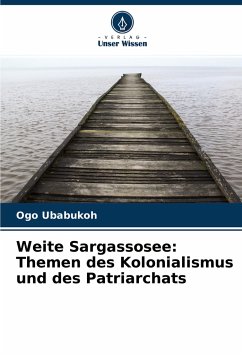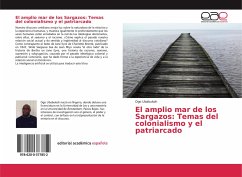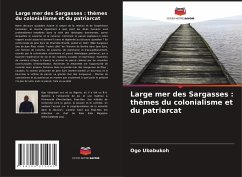
Wide Sargasso Sea: Themes Of Colonialism And Patriarchy
Versandkostenfrei!
Versandfertig in 6-10 Tagen
17,99 €
inkl. MwSt.

PAYBACK Punkte
9 °P sammeln!
Our everyday discourse throws light on the nature of the human relationship and experience, and equally shows how deeply human beings are entangled in the web of the dominant ideologies, amongst them, sexism and racism. How does the past explain our present social relationship and give meaning and legitimacy to the everyday discourse? As a counter-text to Charlotte Brontë's Jane Eyre, published in 1847, Jean Rhys' Wide Sargasso Sea reveals "the other side" of Bertha's story in Jane Eyre, a story of racism, sexism, suppression and subjugation, caused by the Victorian colonial and patriarchal i...
Our everyday discourse throws light on the nature of the human relationship and experience, and equally shows how deeply human beings are entangled in the web of the dominant ideologies, amongst them, sexism and racism. How does the past explain our present social relationship and give meaning and legitimacy to the everyday discourse? As a counter-text to Charlotte Brontë's Jane Eyre, published in 1847, Jean Rhys' Wide Sargasso Sea reveals "the other side" of Bertha's story in Jane Eyre, a story of racism, sexism, suppression and subjugation, caused by the Victorian colonial and patriarchal ideological past, which has shaped life experience and social relationship in Dominica. Critically examined through the prism of the colonial past by new interpretive communities, Rochester and Antoinette are given an opportunity to tell their own stories in Rhys' Wide Sargasso Sea; suddenly, the presumed victim in Jane Eyre soon becomes a victimizer and the victimizer the victim of the past. Wide Sargasso Sea: Themes Of Colonialism And Patriarchy does not only show how meaningless the present is without the past. It goes beyond that.












